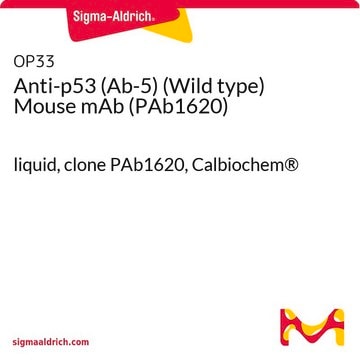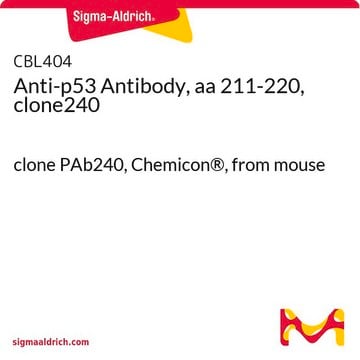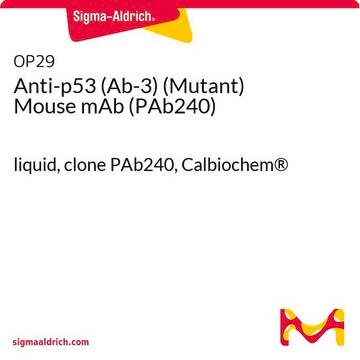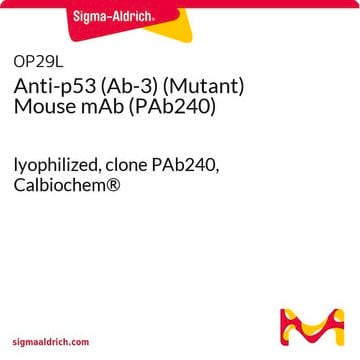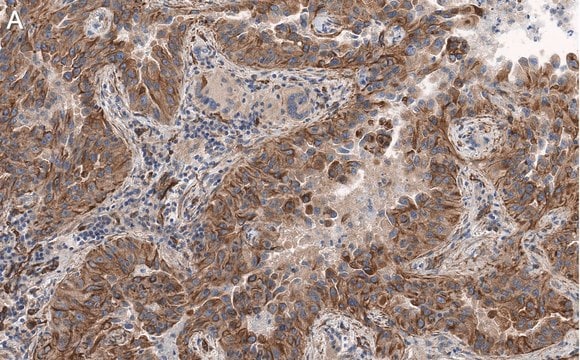MABE339
Anti-p53 (wild type) Antibody, clone PAb1620
clone Pab1620, from mouse
Szinonimák:
Cellular tumor antigen p53, Tumor suppressor p53
About This Item
Javasolt termékek
biológiai forrás
mouse
Minőségi szint
antitest forma
purified immunoglobulin
antitest terméktípus
primary antibodies
klón
Pab1620, monoclonal
faj reaktivitás
human, mouse
technika/technikák
immunohistochemistry: suitable
western blot: suitable
izotípus
IgG2aκ
NCBI elérési szám
UniProt elérési szám
kiszállítva
wet ice
célzott transzláció utáni módosítás
unmodified
Géninformáció
human ... TP53(7157)
Általános leírás
Immunogen
Alkalmazás
Immunoprecipitation Analysis: A representative lot from an independent laboratory detected p53 in IP (Lu, X., et al. (1992). Cell. 70(1):153-161.).
Immunohistochemistry Analysis: A representative lot from an independent laboratory detected p53 in dorsal skin samples from animal trunks (Kramata, P., et al. (2005). Cancer Res. 65(9):3577-3585.) and in certain human cancer tissues (Cordon-Cardo, C., et al, (1991). 51(23 Pt 1):6372-6380.).
Epigenetics & Nuclear Function
Cell Cycle, DNA Replication & Repair
Minőség
Western Blot Analysis: 1 µg/mL of this antibody detected p53 in mouse brain tissue lysate.
Cél megnevezése
Fizikai forma
Tárolás és stabilitás
Analízis megjegyzés
Mouse brain tissue lysate
Egyéb megjegyzések
Jogi nyilatkozat
Nem találja a megfelelő terméket?
Próbálja ki a Termékválasztó eszköz. eszközt
Tárolási osztály kódja
12 - Non Combustible Liquids
WGK
WGK 1
Lobbanási pont (F)
Not applicable
Lobbanási pont (C)
Not applicable
Analitikai tanúsítványok (COA)
Analitikai tanúsítványok (COA) keresése a termék sarzs-/tételszámának megadásával. A sarzs- és tételszámok a termék címkéjén találhatók, a „Lot” vagy „Batch” szavak után.
Már rendelkezik ezzel a termékkel?
Az Ön által nemrégiben megvásárolt termékekre vonatkozó dokumentumokat a Dokumentumtárban találja.
Tudóscsoportunk valamennyi kutatási területen rendelkezik tapasztalattal, beleértve az élettudományt, az anyagtudományt, a kémiai szintézist, a kromatográfiát, az analitikát és még sok más területet.
Lépjen kapcsolatba a szaktanácsadással